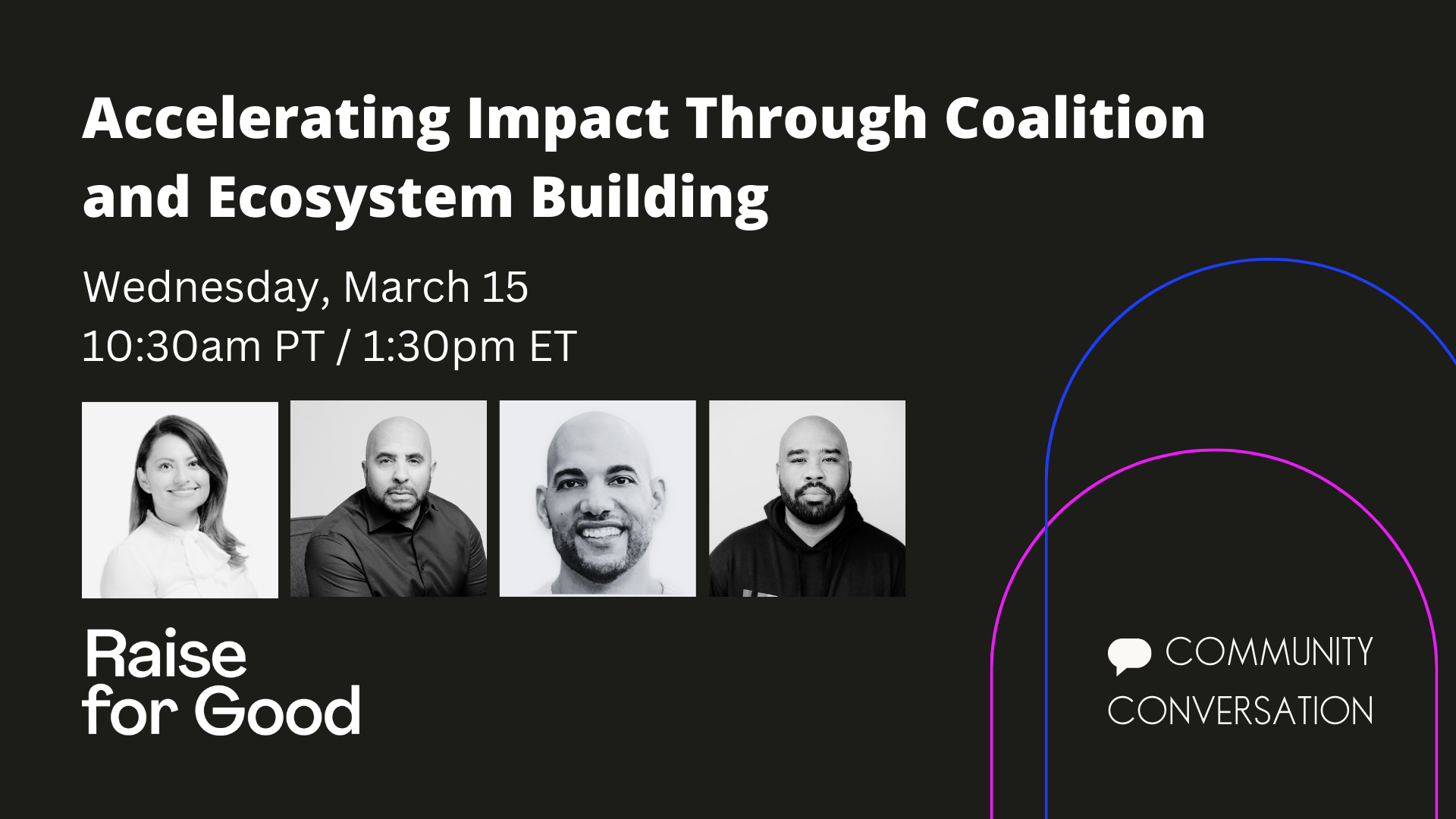
Ecosystem builders and coalitions play a pivotal role in responding to community needs, increasing equitable access to funding and resources, and driving transformational change. Our discussion on Accelerating Impact through Coalition and Ecosystem Building explored what it means to create ecosystems that drive systemic change, stories of success when it comes to ecosystem building, and the challenges that sometimes push leaders to walk away when doing this work.
Our amazing speakers -
Moderator: Lili Gangas, Chief Technology Community Officer, Kapor Center
Charles McDonald, Founder and CEO, Community Engagement Partners
Ken Oliver, Executive Director, Checkr Foundation
Joey Womack, Founder and CEO, Goodie Nation
Event Recap
During the conversation, speakers shared their own definitions of what an ecosystem is and what successful ecosystems do well. They also expressed what drives them in this work, highlighting the importance of perseverance in working towards a better future for the next generation and emphasizing that relationships move at the speed of trust and intentionality. Moving fast and breaking things has been the ethos of innovation and the tech sector for years, but if we really want to enact systemic change, we must prioritize building relationships with community members (proximate leaders) and acknowledge that trust— and ecosystems— take time to build.
How do we define an ecosystem and what does it take to build them?
Effective ecosystems are made up of a group of organizations that have the ability to come together and reach across the boundaries of business, government, self-interest, philanthropy, etc. to focus on fixing systemic challenges. “The best coalitions exercise moral leadership, balance commitments, put change over business interests and focus on being solutions driven.”
The words community and ecosystem are often used interchangeably; to truly understand the power of an ecosystem we must recognize that at its core, it is built on mutual survival among the people, organizations and physical space that make up the system. Each and every one of us has a role to play in the change that we seek to make.
Practicing trust, intentionality and curiosity are critical when it comes to building ecosystems that promote transformational change. “We learn through the accumulation of lessons but we change through the accumulation of practice.”
Reflections on what’s worked well and what hasn’t when it comes to building ecosystems:
The core principles that guide your work are critical– it’s important to go beyond your own individual or organization’s values and lean on community values and principles and work with them to define what success/failure looks like. This will help you get clear on what you are moving towards.
There’s clear tension between moving at the speed of trust (people centered approach) vs. moving fast and breaking things (tech sector approach). Systems change work is a marathon, not a sprint. It requires getting people to think in a different way and using a variety of approaches to achieve impact. Understand that it’s a long range game and use storytelling to find common ground on social issues and change the narrative.
Creating an ecosystem starts with culture. It’s important to find balance between giving community leaders the intentional support and backing they need and cultivating the actions, behaviors and habits that will enable them to be successful.
When the going gets tough, how do you decide whether to persevere or walk away?
Draw inspiration from historical leaders like MLK and others who did not walk away– “We are called to a responsibility to not turn down but instead fight. We have the privilege to do this work for future generations. It's not about me or us but the future. We are charged with building a fair future. Historic struggle is protracted and history will tell the tale of how we stood up.”
Reflect on your role in the ecosystem– This goes back to mutual survival, “If you walk away, you leave a hole in the ecosystem. Assets (people and organizations) are dependent on you.” Think back to the values you set forth and take an assessment of your role and where you sit in the ecosystem.
Understand that there is the world as it is and the world as it should be– The tension between these two things is what drives change. Despite systemic oppression, Black communities have created some of the most innovative and bold pathways toward living out our full humanity, bringing us closer to the world as it should be. “Every step forward is a step toward humanity.”
